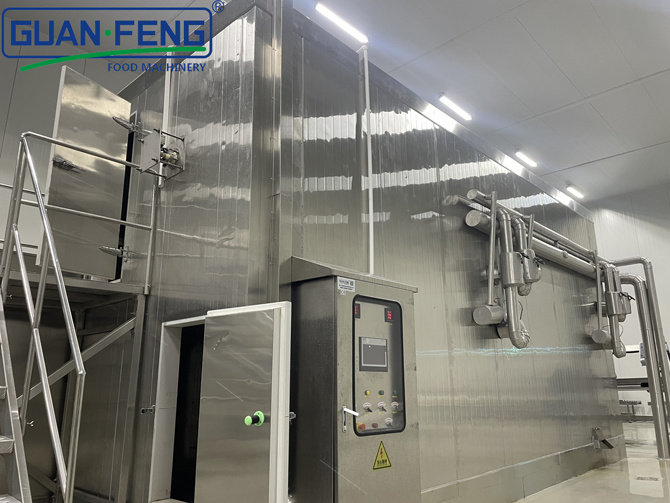BLOG
Focus on hot topics, real-time dynamics
Exploring the Benefits and Applications of Fruit Freeze Dryers in Life Sciences
Fruit freeze dryers, a vital tool within the life sciences sector, are designed to remove moisture from fruits while preserving their structure, flavor, and nutritional content. This process, known as lyophilization or freeze-drying, is particularly beneficial for maintaining the integrity of biological specimens. As professionals in the field, understanding the operational principles and benefits of these machines can significantly enhance laboratory efficiency and research outcomes.
The freeze-drying process involves three main stages: freezing, primary drying, and secondary drying. Initially, the fruit is frozen, which solidifies the water content. This is followed by primary drying, where the pressure is reduced, allowing the frozen water to sublimate directly from ice to vapor. Finally, secondary drying removes any remaining moisture, resulting in lightweight, shelf-stable products that retain their original characteristics. This method not only extends the shelf life of fruit but also maintains its essential nutrients, making it an ideal choice for researchers requiring reliable sample preservation.
In the life sciences, fruit freeze dryers have a wide array of applications. They are essential in food science research, enabling scientists to study the effects of dehydration on various fruits and their subsequent rehydration properties. This knowledge is crucial for developing new food preservation techniques and enhancing food quality. Moreover, freeze-dried fruits are often utilized in nutritional studies, allowing researchers to assess the impact of long-term storage on the nutritional value of fruits.
Beyond food science, these devices play a crucial role in the preservation of biological samples. Samples such as plant tissues, microbial cultures, and even human cells can benefit from the freeze-drying process. By removing moisture, researchers can store these samples for extended periods without compromising their viability. This capability is particularly important in genetic studies, biobanking, and long-term ecological research.
When selecting a fruit freeze dryer for your laboratory, it is essential to consider factors such as capacity, energy efficiency, and ease of use. Additionally, ensure that the machine is equipped with advanced features like temperature control and vacuum monitoring, which can optimize the freeze-drying process and lead to better results.
In summary, fruit freeze dryers are an indispensable asset in the life sciences industry, providing a reliable method for preserving the integrity of both food and biological samples. Understanding their operational mechanisms and applications can empower professionals to make informed decisions, ultimately enhancing the quality and efficiency of their research endeavors. By integrating this technology into your workflow, you can significantly advance your laboratory's capabilities and contribute to groundbreaking discoveries in the life sciences.
The freeze-drying process involves three main stages: freezing, primary drying, and secondary drying. Initially, the fruit is frozen, which solidifies the water content. This is followed by primary drying, where the pressure is reduced, allowing the frozen water to sublimate directly from ice to vapor. Finally, secondary drying removes any remaining moisture, resulting in lightweight, shelf-stable products that retain their original characteristics. This method not only extends the shelf life of fruit but also maintains its essential nutrients, making it an ideal choice for researchers requiring reliable sample preservation.
In the life sciences, fruit freeze dryers have a wide array of applications. They are essential in food science research, enabling scientists to study the effects of dehydration on various fruits and their subsequent rehydration properties. This knowledge is crucial for developing new food preservation techniques and enhancing food quality. Moreover, freeze-dried fruits are often utilized in nutritional studies, allowing researchers to assess the impact of long-term storage on the nutritional value of fruits.
Beyond food science, these devices play a crucial role in the preservation of biological samples. Samples such as plant tissues, microbial cultures, and even human cells can benefit from the freeze-drying process. By removing moisture, researchers can store these samples for extended periods without compromising their viability. This capability is particularly important in genetic studies, biobanking, and long-term ecological research.
When selecting a fruit freeze dryer for your laboratory, it is essential to consider factors such as capacity, energy efficiency, and ease of use. Additionally, ensure that the machine is equipped with advanced features like temperature control and vacuum monitoring, which can optimize the freeze-drying process and lead to better results.
In summary, fruit freeze dryers are an indispensable asset in the life sciences industry, providing a reliable method for preserving the integrity of both food and biological samples. Understanding their operational mechanisms and applications can empower professionals to make informed decisions, ultimately enhancing the quality and efficiency of their research endeavors. By integrating this technology into your workflow, you can significantly advance your laboratory's capabilities and contribute to groundbreaking discoveries in the life sciences.
Hot Tags:
PREVIOUS:
Contact Us
E-mail:
sales@syguanfeng.com
Tel:
+86 15088506234
Address:
South Industrial Park of Dongguan, Shangyu District, Shaoxing City,Zhejiang Province,China.
GUANFENG, your customization experts!
GUANFENG FOOD MACHINERY - leading supplier of integrated food processing solutions
Copyright© 2024 ZHEJIANG GUANFENG FOOD MACHINERY CO.,LTD.










